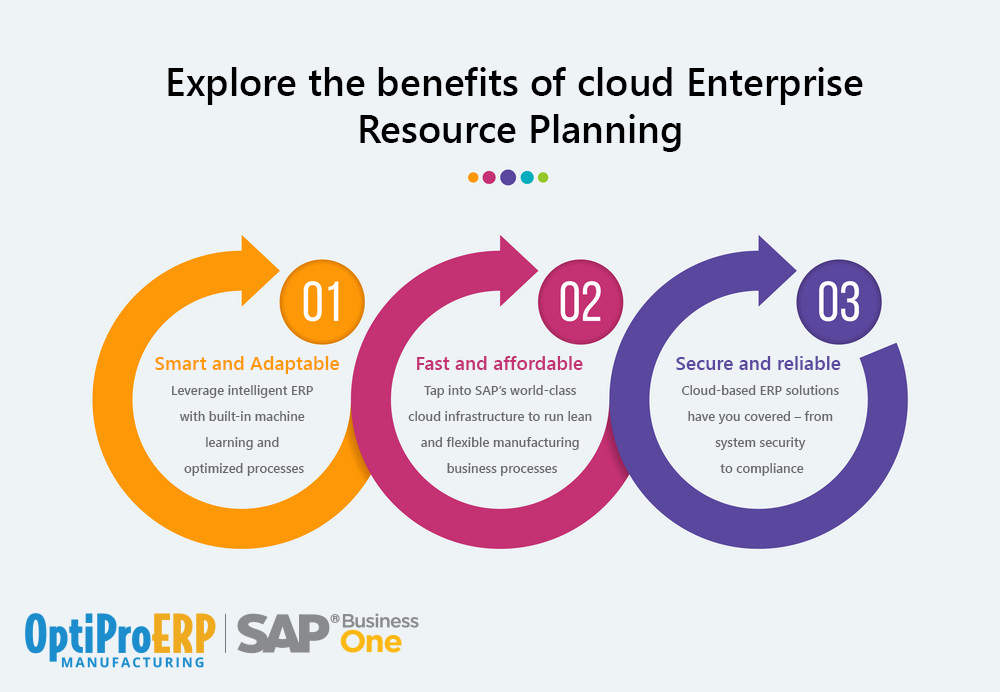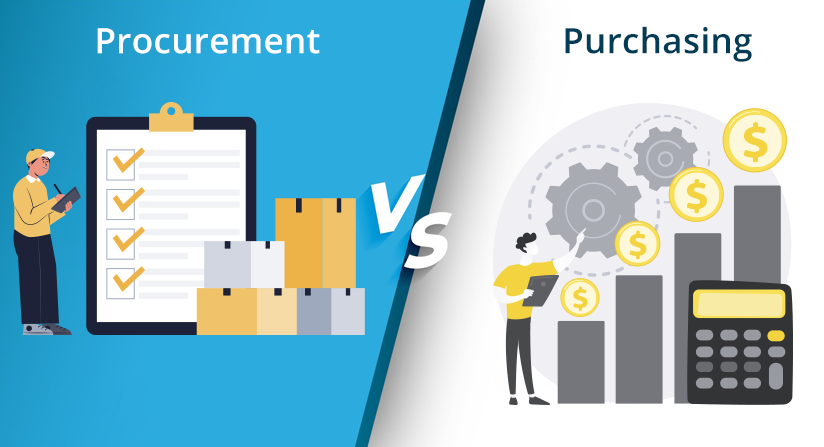What is Cloud ERP?
Cloud computing has fundamentally changed the way organizations work. As long as your data resides in the cloud it is always easily accessible.
If we had to define it at its most basic level, ERP software links all the business processes from procurement to sales, finance to HR, and manufacturing to services. ERP software shares a common set of essential data in a company. Because a better understanding of every business process affects the next stage of the process, a Cloud ERP makes your business more efficient.
On-cloud everything is more efficient!
Keeping business-relevant information online spares the human error of constantly dealing with documents and files being uploaded and downloaded. With cloud ERP everything can be adjusted and updated in real-time. And every person working from any location can be constantly in touch and collaborate seamlessly.
Aberdeen report highlights on cloud ERP
– Save money
– Create efficiency in order fulfillment
– Enhance visibility and traceability
– Achieve innovation and business scalability
– Improve sales
– Scale with ease using flexible capabilities
On its own, cost-saving is a compelling advantage, but there is much more to using an on-cloud ERP.
Is cloud ERP right for you?
Why are manufacturers switching to cloud ERP? Manufacturers are moving towards the cloud to stay competitive with the rise of automation and remote working that has been impacting the manufacturing industry.
As per the Aberdeen report, organizations using cloud ERP stayed within their budgets as compared to 12% who were over budget using an on-premise solution. This percentage is quite a compelling difference.
Though cost savings are just one of the reasons for manufacturing businesses to use a cloud-based ERP, the report also mentions that those using an on-cloud ERP have achieved a ROI in 24 months as compared to the 31 months for on-premise users.
Benefits noted among businesses of all sizes using a cloud ERP
As compared to organizations using an on-premise ERP, cloud-ERP has innumerable benefits ranging from faster decision making, quicker business processes, improved on-time shipments, and increased profit margins.
Business drivers impacting cloud decisions
According to recent Aberdeen research, 31% of businesses stated a need for collaboration across different locations to help streamline business processes.
Cloud ERP manufacturing software lets you communicate and collaborate from anywhere at any time and provides better visibility and clarity about business processes to make faster decisions.
In the same report, 24% of businesses stated they were looking for a solution that could be more scalable and rely on one single software with ongoing support from their software vendor. 22% of them wanted to replace an outdated technology structure with a cloud solution.
Cloud-ERP affects everyday job functions in the organization to include sales, supply chain management, overall corporate management and governance, financial operations, etc.
A lot of sales activities are often performed outside of office premises. A leading report suggests that 62% of businesses polled indicated that sales can be greatly improved through cloud technology. When sales can see customer data in real-time it allows them to provide better assistance.
What are the benefits of moving to the cloud ?
For businesses that have moved beyond the start-up phase and are trying to get a hold of their supply chain management, on-cloud ERP can be a big asset.
Choosing your cloud-ERP manufacturing software
Choose an ERP service provider with deep knowledge who will provide you with a list of clients that are using your proposed product – including the modules you consider critical for your business. Ensure that your service provider has experience in your industry and market segment. Cloud-based ERP for manufacturers can go global quickly, so your service partner should have provided remote training, international support, and have experience with regulatory issues in your overseas markets as well.
In the end, your ERP implementation is one step in a long-term relationship between you and the software vendor. You should do business with a company that wants to help you achieve success.
If you’re looking for a manufacturing ERP, contact us for more information. If you wish to learn more about the core features of an ERP solution and how it can help your manufacturing business.
Follow Us










